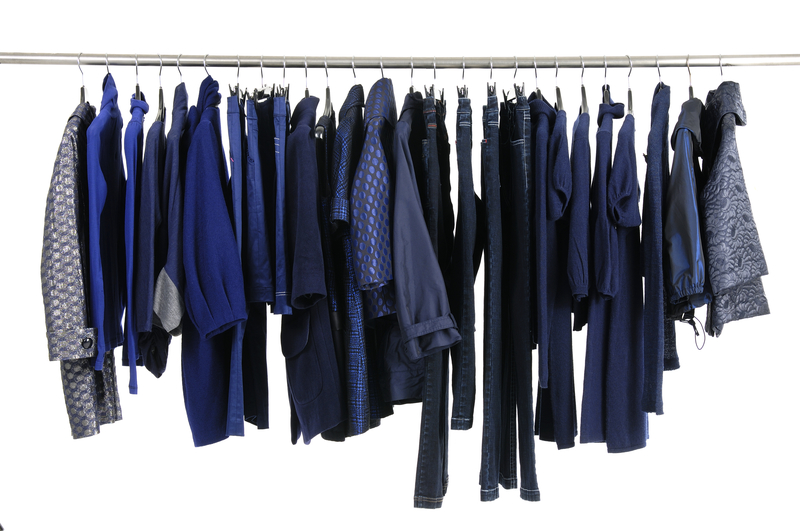
After discussing the Mishkan in last week’s Perashah, this week’s Perashah, Tetzaveh, describes in detail the priestly garments to be worn by the Kohanim, as well as the specific garments to be worn by the Kohen Gadol. So far, this is the only Perashah since the birth of Moshe that does not mention him by name even once. This is because in next week’s Perashah, Ki Tisa, when Hashem tells Moshe that he is going to destroy B'nei Yisrael for worshiping the golden calf, Moshe says, "Erase me from your book (if you will destroy Am Yisrael!)" For that reason Hashem took Moshe's name out of this week’s Perashah, to show us that our words carry meaning. It is also significant that the reading of this particular Perashah, which omits Moshe’s name, coincides with Moshe’s birthday and Yahrzeit on the 7th of Adar.
As the Parasha begins (28:1), Hashem says to Moshe,"Now bring near to yourself your brother and his sons with him, from among the children of Israel – Aaron, Nadab and Abihu, Elazar and Ithamar, the sons of Aaron – to minister to Me. You shall make vestments of sanctity for Aaron your brother, for glory and splendor. And you shall speak to all the wise-hearted people whom I have invested with a spirit of wisdom, and they shall make the vestments of Aaron, to sanctify him to minister to Me". Hashem chose only Aaron and his four sons and all their descendants, right up to this very day, to be Kohanim and serve in the Bet Hamikdash. The Torah goes to great lengths to describe every article of the Kohen Gadol's clothing. We must learn from the words,“whom I have filled with the spirit of wisdom”, that we can never act arrogantly about the special talents that Hashem gave us. We have no right to act haughtily regarding our G-d given talents, whether we are very smart, a great athlete or can play an instrument or carry a tune with perfection because as Rabbi Diamond always taught us, those are all gifts from Hashem, just like our kidneys, "Do we take pride and boast about the fact that we have good kidneys?" So the same way, we can't take pride in any of the other gifts that Hashem has given us!
We must know that the Torah doesn't waste a single letter, let alone paragraph upon paragraph of information, as in the description of the Kohen's clothing. The Pasuk says that the vestments are to be made "for glory and splendor". The Ramban teaches that these garments were intended to honor the Kohanim, for they were similar to the garb of royalty! Sforno comments the purpose behind this is that the Kohen Gadol will be revered as the teacher of the nation by the tribes whose names are inscribed on his breastplate.
Clothing has a major impact on us. We expect to see an important person like the President or a Monarch dressed in proper or royal clothing, and if we don't, this can lower the level of that leader in our eyes. In today's society, we have a phrase, 'Dress for Success' . It is true that our clothing can bolster our self-esteem, but there's a certain amount of Ga’ava (haughtiness) that may go along with this attitude. The Torah wants to show us that the clothes of the Kohanim were not intended to make the Kohen Gadol haughty or conceited, but rather are intended to show the Jewish people that we must be in awe of the one who does the service of Hashem, so he must look like royalty, as he is serving the greatest King of all, Hashem!
I heard Rabbi Wachsman speak a few times last year, and in his speech about haughtiness, he presented this parable: "Imagine a poor man who was invited to a wedding but does not even have one suit of his own to wear. So he asks a wealthy friend of his to lend him a suit for the evening. Since he borrowed this very expensive Canali suit from a wealthy man, would it be proper for him to then go around bragging and showing off this beautiful suit as if it were his own? Of course not, because it’s a borrowed suit and he doesn't own even one suit of his own." It’s the same with us: we don't have anything that is ours alone, and we have to thank Hashem every minute for all the gifts that He continues to bestow upon us, his humble servants.
May we all use our clothing to elevate our appearance for the sake of Hashem and not merely to impress our friends. May we also know that it is important to always look our best when serving Hashem, just as the Kohanim did in the time of the Bet Hamikdash. Let us be aware of our G-d given talents, as they are all gifts from Hashem and we should not act haughtily because we possess them. Amen!
Parasha perspective By Jack E. Rahmey from the teachings and guidance of Rabbi Amram Sananes.








